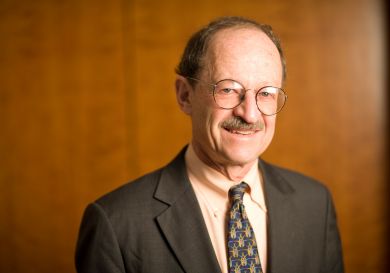Trumping Science?
This is an excerpt of an article that appeared in STAT. Read the original here.
Biomedical and public health researchers struggled Wednesday to fathom what the incoming Trump administration might mean for their fields, as they tried to separate their personal views about the election (many supported Hillary Clinton) from what’s known or expected about the president-elect’s plans.
“It’s so hard to know” what the Trump White House will do, said Dr. Eric Topol, director of the Scripps Translational Science Institute and professor of genomics at the Scripps Research Institute. One hopeful sign: Newt Gingrich, former speaker of the House of Representatives and a close Trump ally, last year called for a doubling of the National Institutes of Health budget and is a strong supporter of science research (he used to have a replica of a T. rex skull in his office).
“I have spoken to Newt in the past, around the time of his NIH op-ed, and I know he is passionate about that,” said Topol. “But will his views have influence? It’s unclear who Trump will turn to for top advisors in science and biomedical research.”
Very few scientists publicly supported Trump, leading some long-term biomedical leaders to say their first order of business should be to open the lines of communication. “Some responsible scientist needs to educate [Trump’s transition team] about the importance of the scientific enterprise,” said Dr. Harold Varmus, a former director of the NIH and now at Weill Cornell Medicine. “I hope we’re going to be able to accommodate the new reality. But someone needs to give the transition team a tutorial.”
Nor is it clear how Trump’s anti-immigration stance would affect the willingness, or ability, of foreign science and medical students to study, train, and stay in the US.
...
The number of graduate students in science and engineering rose 5.5 percent from 2013 to 2014, the latest figures available, according to the National Science Foundation, from 570,300 to 601,883. Much of that increase reflected a years-long rise in the number of foreign graduate students on temporary visas, which grew 7.4 percent from 2012 to 2013 and 16 percent from 2013 to 2014. At many US biomedical labs, they constitute a majority of the bench talent.
“One of things [Trump] has to understand is that the vitality of our scientific enterprise depends on continued immigration,” said Varmus. Although Trump has said he’s not opposed to immigration of high-skilled workers, “people are not going to want to come to a country that looks with suspicion and resentment on people from abroad. There are other countries that do good science, and if we don’t send signals that we welcome [foreign science students and scientists], that’s bad news.”
As some scientists worried about what would happen to President Obama’s precision medicine initiative and cancer moonshot, among other high-profile science projects, Varmus was more sanguine. Trump “seemed sincere in offering an olive branch” to his opponents in his election night victory speech. “If he is, then this is a good place to begin, in biomedical research and preparing for the next outbreak” of an emerging infectious disease such as Zika.
....
Additional coverage:
The only way scientific research in america won't wilt is if Trump thinks of it like infrastructure - QUARTZ
Trumping Science? - The Scientist
Biomedical research leaders urge Trump administration to quickly appoint an NIH director - Science



